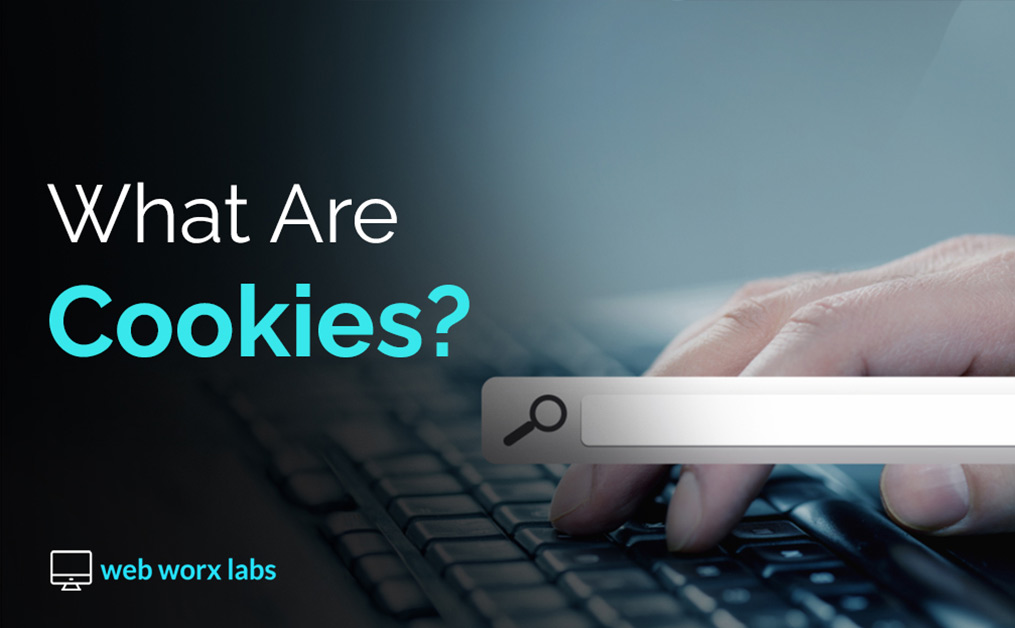What are Cookies (on the internet)?
We are talking about the internet here – so if you got a picture of a chocolate chip cookie pop up in your head – you are not alone. 🍪😋 So what are cookies on the internet (not the ones we eat) exactly?
Computer cookies more formally known as HTTP cookies are not physical objects but text files with small pieces of data, like a username and password that are used to identify your computer as you use a computer network.
It is basically a process where the file is saved in your browser when you visit first visit a webpage. This file that contains code tracks your behaviour, shares insights in a central place for folks that manage the website.
They are an essential part of web development and can give you more convenient and personalized web visits. Cookies remember you, your shopping carts, website logins, and more details which enables them to keep track of what you have visited and downloaded in the past. Computer cookies can both improve your browsing experience and also prove troublesome when it comes to your online privacy and data.
Related: What are algorithms?
Related: Web Development Solutions
Why are they called cookies?
The name ‘cookie’ has its roots in an early programming phrase called ‘magic cookie’ which was popular amongst users of the UNIX computer operating system (UNIX is another less intuitive system like Windows) and was used to describe data passed between two programs (possibly as a shout-out to fortune cookies as they contained messages).
Way back in 1964, a once-popular web genius called Lou Montulli wanted to create small data carriers for websites that would enable a user’s activity to be tracked and stored and henceforth he made the spinoff ‘cookie’ from ‘magic cookie’. They are now commonly referred to as web cookies, browser cookies, and internet cookies.
Types of Cookies:
There are three types of computer cookies:
- Session
- Persistent
- Third-party
These text files are all very different and have their own usage.
Session cookies are temporary cookies that store your online activities. Since websites don’t have any memory, they make use of session cookies to track and save your data to prevent you from being treated like a completely new visitor.
Meanwhile, persistent cookies (also known as first-party cookies) work by tracking your online preferences. If you personalize a website to suit your preferences then these permanent cookies will remember your preferences the next time you visit the website.
Third-party cookies (also called tracking cookies) collect and store data such as your location, age, interests, and search trends which are then passed or sold to advertisers by the website that created the cookie. This allows marketers to provide you with personalized advertisements.
How cookies can become unsafe?
Under normal circumstances, cookies are not dangerous because the data within them isn’t changed as it travels back and forth. Hence they cannot transfer viruses and malware to your computer.
However, some cookies can be hijacked by cyberattacks which enable access to your browsing history which can compromise your privacy online. Some viruses and malware can also be disguised as cookies and are a potential security concern such as ‘super cookies’.
Similarly, ‘zombie cookies’ are permanently installed in users’ computers and reappear even after being deleted.
Third-party cookies are more susceptible to cause privacy concerns as they allow parties to track your online activities.
How are cookies used in marketing?
Many brands, digital marketers and some IT departments retain contracts with third parties to facilitate their marketing initiatives when you visit or use their online services.
Cookies allow companies to retain your online information such as how you visited their website including any advertisements you interacted with, other devices you may have used to search for them, any specific search term you used to reach them, and the services they provide.
These technologies enable third parties to know about your specific interests and to formulate advertisements about their services and products according to them.
Cookies have also been used to gather information for data analytics such as whether users are visiting a website from pay-per-click ads, backlinks, or search results and how much time do they spend per page.
You can use this data to market and remarket the users who show interest, have visited your branded website to help get eventual sales.
As you can tell, cookies provide a ton of other information and insights for marketing, whether that is placing your ads in front of an audience that is likely to try your brand offering to upsell, repeat, and referral opportunities.
Last bite – I mean thoughts…
Hopefully, you can see that cookies play a big role in enhancing and personalizing our browsing experience. They are here to stay in some form or another even with the recent pushback from various markets and economies.
Marketers have used them extensively in the past 20 years to help track, measure, and market to the online community across the world wide web.
They are an enormous asset to businesses and services to dig up marketing data for companies and small business owners. Hopefully, you have a better understanding of what are cookies – especially internet cookies.
No cookie blog will be complete without an image of a chocolate chip cookie (internet cookie or not).
So with that said, here is a picture of a cookie for the good measure.

Image Source: Getty Images (creative commons license)
Who does not want to have a bite of deliciousness now? Bon Appetit!
Thoughts, questions, comments? Reach out via our contact us page or comment below.

From a start-up helping local small businesses, over a span of 5 years, Usman has built Web Worx Labs to be a leading provider of digital marketing solutions that employs 15+ full-time employees and has customers in over 30 countries.
Outside of work and his passion for all things digital, Usman is a proud father of three, loves running and is an avid reader.
Follow Usman on LinkedIn or Twitter as he is always sharing tips on strategy, branding, marketing and analytics.
